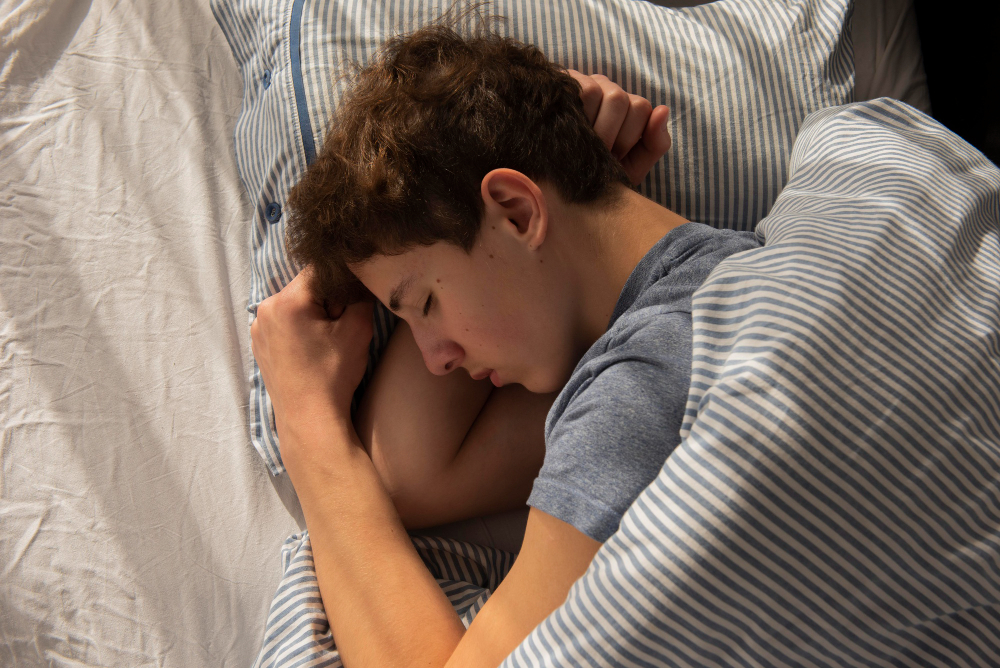We’ve long known that sleep is crucial for brain development, but new research highlights just how dramatically even small differences in sleep habits can impact the teenage brain.
A recent study of over 3,000 adolescents found that teens who consistently go to bed earlier and get just a little more sleep than their peers had significantly sharper cognitive abilities. That includes better problem-solving, reading, and vocabulary skills. Even more fascinating? These benefits were tied to small changes—sometimes just 15 minutes more sleep per night.
What the Research Revealed
The study, published in Cell Reports, analyzed sleep patterns, brain scans, and cognitive tests in more than 3,000 participants. The findings were clear: teens who went to bed earliest, slept the longest, and had the lowest resting heart rates performed best on cognitive tests. They also had the healthiest brain structure and function.
Despite these benefits, none of the teens in the study reached the American Academy of Sleep Medicine’s recommended 8–10 hours of nightly sleep for adolescents. In fact, the best sleepers averaged just 7 hours and 25 minutes per night—still below optimal.
But even with that shortfall, this group consistently outperformed their peers. It confirms what we see in practice at Resolve Medical: sleep is a foundational pillar of cognitive health, and even small shifts in sleep behavior can have long-term impact—especially during adolescence when the brain is rapidly developing.
Why Teens Are Wired to Stay Up Late (and Why It Hurts)
Thanks to natural shifts in their circadian rhythm, teenagers tend to feel sleepy later at night. Combine that with early school start times, screen exposure before bed, and social habits—and you get a perfect storm of chronic sleep deprivation.
And yet, the consequences aren’t just grogginess or a bad mood. What this study shows is that these sleep patterns actually change brain structure over time. Teens who routinely miss out on deep, restorative sleep may be setting themselves up for long-term cognitive deficits, not just short-term fatigue.
How Parents and Teens Can Take Action
The good news? Small changes can make a big difference. Here are a few recommendations we regularly give families at Resolve Medical:
- Prioritize a consistent bedtime and wake-up time, even on weekends. Avoid the trap of “social jet lag.”
- Create a wind-down routine free of screens for at least 60 minutes before bed. Blue light exposure delays melatonin production.
- Encourage regular physical activity, ideally earlier in the day, which can support deeper sleep at night.
- Keep bedrooms cool, dark, and quiet—and treat the bed as a sleep-only zone.
- Teach teens the “why” behind sleep—understanding its connection to brain performance and mood helps them care about protecting it.
As the developer of the Brainlift Program, Dr. Scott Noorda believes the teenage years are a golden window for cognitive development. Protecting and prioritizing sleep during this time isn’t just about avoiding grogginess—it’s about building stronger, sharper brains for life.
If you’re concerned about your teen’s sleep or cognitive health, we’d love to help. At Resolve Medical, we offer personalized brain health assessments and integrative strategies for families who want to optimize long-term wellness. Schedule your free 15-minute Discovery Call today: https://resolvemedical.us/discovery-call/
Resources:



